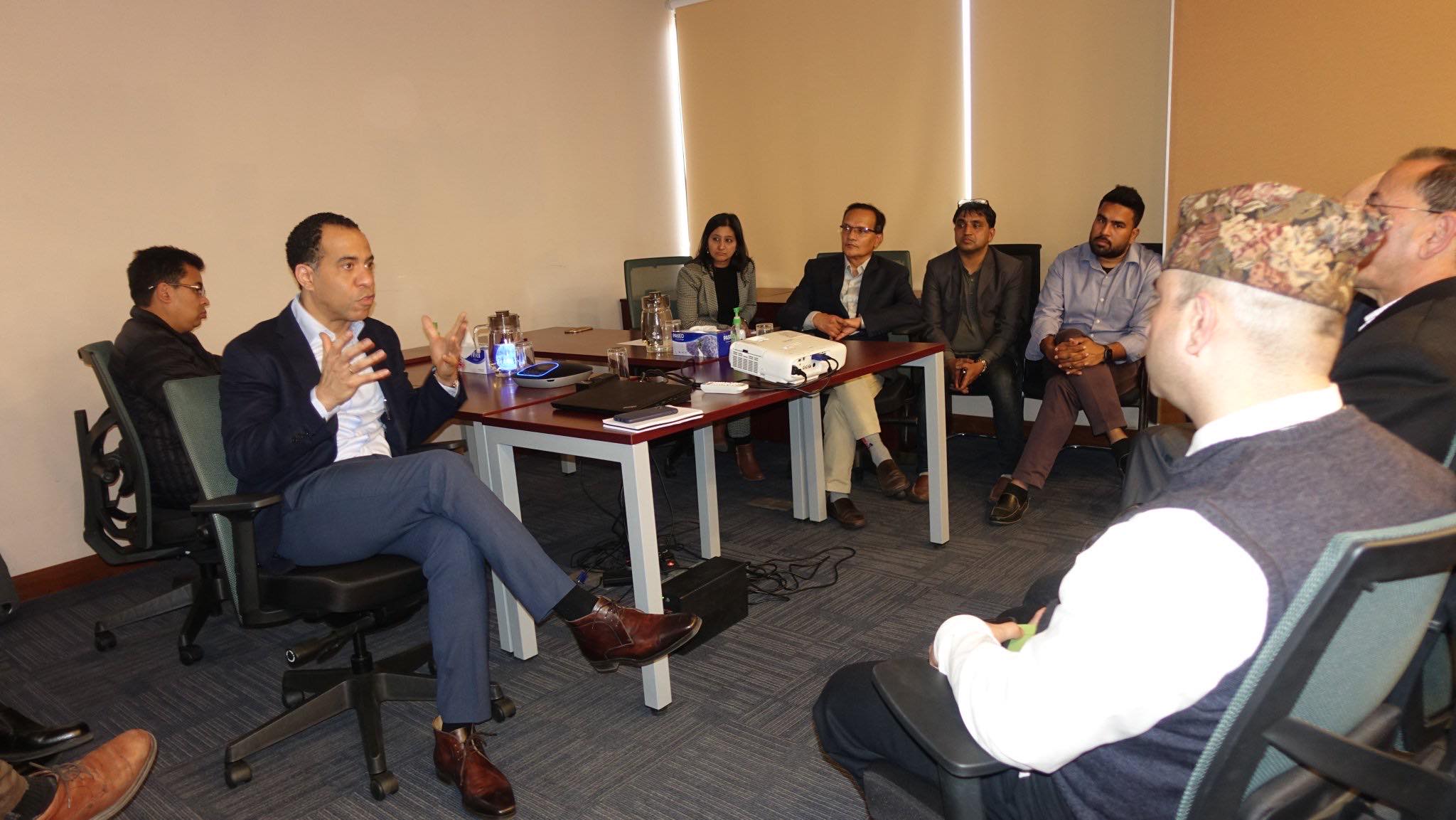KATHMANDU: Deputy Vice President for Europe, Asia, Pacific & Latin America for the Millennium Challenge Corporation (MCC) Jonathan Brooks has arrived in Nepal on Friday.
His visit is part of the ongoing consultations in support of the $500 million MCC Compact with the country.
During his four-day visit, Brooks will meet employees of Millennium Challenge Account Nepal (MCA-Nepal), newly-appointed Chairman of MCA-Nepal Board of Directors Rajan Khanal and Minister for Physical Infrastructure and Transport Basanta Kumar Nembang among other government officials.
MCC, an independent agency of the US government established in 2004, provides grants for poverty alleviation through economic prosperity to the country that passes set parameters.
The Compact was long sought by the Nepal government and was one of the programs signed by Gyanendra Bahadur Karki, then Finance Minister during the Sher Bahadur Deuba-led government in 2016.
MCC and Nepal signed the Compact to spur economic growth through investments in electricity and transportation—areas that the government has identified as critical and that is expected to make Nepal more prosperous and resilient.
MCC’s Board of Directors in December 2014 had selected Nepal to develop a Compact. Since then, the MCC and the government of Nepal have focused on developing a Compact to address the identified constraints to growth in Nepal.
The MCC project is focused purely on economic development by helping to build power lines and improve roads and there is no military component to the MCC.
There is no mention of the Indo-Pacific Strategy (IPS) in the Compact.
MCA-Nepal, Nepal government, US government officials including US Embassy and ambassador have time and again clarified that there are no articles, sections and/or conditions of the Compact are against Nepal’s constitution, not threaten Nepal’s independence and sovereignty.
Diminishing rumors spread about the Compact, they have tried to assure that that MCC has no connection to any strategy and military affairs.
The Compact was submitted to the Parliament Secretariat on July 15, 2019, for ratification, given that the Compact has a strict five-year implementation period.
The Compact is set to be ratified through the current session of Parliament soon.








Comment